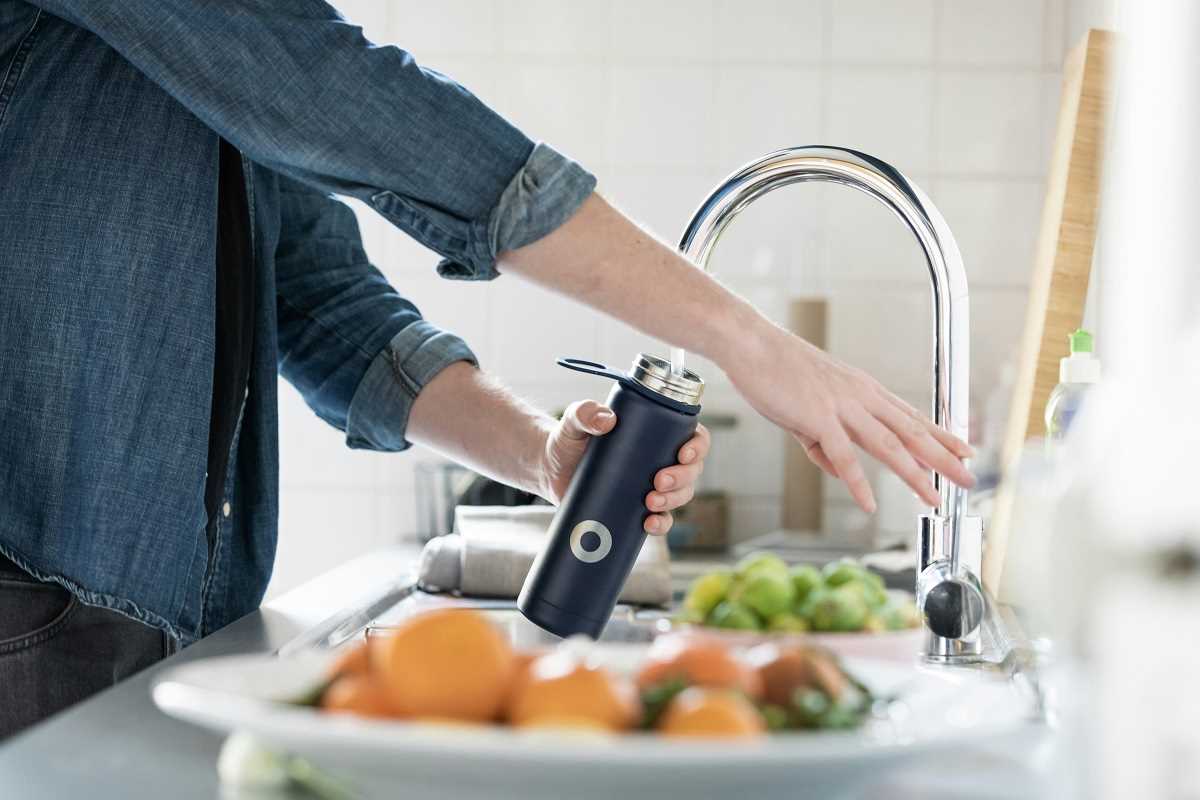Water makes up roughly 60% of your body weight, yet most people don't realize how profoundly hydration affects their mental state. While we commonly associate dehydration with physical symptoms like headaches and fatigue, emerging research reveals a powerful connection between proper hydration and psychological well-being. Studies show that even mild dehydration—as little as 1-2% loss of body fluid—can significantly impair mood, concentration, and cognitive function. The American Journal of Clinical Nutrition reports that dehydrated individuals experience increased anxiety, decreased alertness, and reduced working memory capacity. These findings challenge the traditional view of hydration as merely a physical necessity.
You'll discover the fascinating science behind water's role in brain health, learn to recognize subtle signs of dehydration that affect your mental state, and explore practical strategies to optimize your hydration for peak psychological performance. The path to better mental wellness might be as simple as reaching for your water bottle.
The Brain-Water Connection: Understanding the Science
Your brain is approximately 75% water, making it one of your body's most water-dependent organs. This high water content isn't coincidental—proper hydration is essential for virtually every brain function, from neurotransmitter production to waste removal.
How Dehydration Disrupts Brain Function
When you're dehydrated, your brain tissue literally shrinks. Advanced neuroimaging studies from King's College London demonstrate that dehydration causes brain volume to decrease, forcing your brain to work harder to accomplish the same tasks. This increased effort manifests as mental fatigue and reduced cognitive efficiency.
The blood-brain barrier, which protects your brain from toxins, also depends on adequate hydration to function properly. When dehydrated, this protective mechanism becomes less effective, potentially allowing harmful substances to reach brain tissue while impeding the delivery of essential nutrients.
Neurotransmitter Production and Water Balance
Your brain's chemical messengers—neurotransmitters like serotonin, dopamine, and GABA—require water for synthesis and transport. Dehydration disrupts this delicate chemical balance, contributing to mood disorders and cognitive dysfunction.
Research from the University of Connecticut found that women experiencing mild dehydration showed significant increases in fatigue, anxiety, and difficulty concentrating. The study's lead researcher, Dr. Harris Lieberman, noted that these effects occurred before participants felt physically thirsty, highlighting how mental symptoms often precede physical awareness of dehydration.
The Stress Response and Hydration
Dehydration triggers your body's stress response system, increasing cortisol production. This stress hormone can remain elevated for hours after rehydration begins, creating a cycle where dehydration increases stress, which then impairs your body's ability to retain water efficiently.
The hypothalamic-pituitary-adrenal (HPA) axis, your body's primary stress response system, is highly sensitive to hydration status. When dehydrated, this system becomes hyperactive, contributing to feelings of anxiety and overwhelm that many people attribute to other causes.
Recognizing the Mental Signs of Dehydration
Traditional dehydration symptoms like dark urine and dry mouth appear relatively late in the process. Mental and emotional changes often occur much earlier, serving as your body's early warning system.
Cognitive Performance Indicators
Difficulty Concentrating: Research published in the British Journal of Nutrition shows that dehydration reduces attention span by up to 23%. You might notice your mind wandering during conversations or struggling to focus on tasks that normally feel manageable.
Memory Problems: Short-term memory formation requires adequate hydration. Studies indicate that dehydrated individuals perform 12% worse on memory tasks compared to their well-hydrated counterparts.
Decision-Making Challenges: The prefrontal cortex, responsible for executive decisions, is particularly sensitive to hydration status. Dehydration can make simple choices feel overwhelming and lead to poor judgment in both personal and professional situations.
Emotional and Mood Changes
Increased Irritability: Even mild dehydration can make you more reactive to stressors. The Journal of Nutrition published findings showing that dehydrated participants reported increased feelings of anger and confusion during routine activities.
Anxiety and Restlessness: Dehydration activates your sympathetic nervous system, creating physical sensations similar to anxiety. Your heart rate may increase, and you might feel jittery or on edge without understanding why.
Mood Swings: Water balance affects the production of mood-regulating neurotransmitters. Fluctuating hydration levels throughout the day can contribute to emotional volatility and unpredictable mood changes.
Reduced Motivation: The energy required for your dehydrated brain to function normally leaves less mental resources available for motivation and goal-directed behavior. Tasks that usually energize you may feel overwhelming or pointless.
The Science of Optimal Hydration for Mental Health
Understanding how much water you need and when to drink it can significantly impact your mental well-being. Individual hydration needs vary based on factors including body size, activity level, climate, and overall health status.
Daily Water Intake Recommendations
The National Academy of Sciences suggests approximately 15.5 cups (3.7 liters) of fluids daily for men and 11.5 cups (2.7 liters) for women. However, about 20% of your fluid intake comes from food, particularly fruits and vegetables with high water content.
For mental performance optimization, spreading your water intake throughout the day proves more effective than consuming large amounts sporadically. Research from the European Journal of Clinical Nutrition indicates that consistent hydration maintains stable cognitive function, while intermittent drinking patterns can create performance fluctuations.
Factors That Increase Hydration Needs
Physical Activity: Exercise increases fluid loss through sweat and respiration. The American College of Sports Medicine recommends drinking 16-24 ounces of water for every pound lost during exercise.
Climate and Environment: Air conditioning, heating, and low humidity environments increase water loss through respiration. High altitudes also accelerate dehydration, requiring 12-16 ounces of additional fluid daily.
Stress and Illness: Both physical and psychological stress increase your body's water needs. Fever, vomiting, and diarrhea obviously require fluid replacement, but chronic stress also elevates hydration requirements through increased cortisol production.
Caffeine and Alcohol: While moderate caffeine consumption doesn't significantly dehydrate most people, alcohol has a diuretic effect that can persist for hours after consumption.
The Role of Electrolytes in Brain Function
Water alone isn't sufficient for optimal hydration—your body needs electrolytes to maintain proper fluid balance. Sodium, potassium, magnesium, and calcium work together to regulate nerve function and maintain cellular hydration.
Pure water without electrolytes can actually dilute your blood sodium levels, potentially causing hyponatremia. This condition can produce symptoms similar to dehydration, including confusion, headaches, and mood changes.
Practical Strategies for Staying Hydrated
Making hydration a consistent habit requires more than good intentions. These evidence-based strategies help you maintain optimal fluid balance throughout the day.
Start Your Day with Hydration
Your body loses 1-2 pounds of water during sleep through respiration and sweating. Drinking 16-20 ounces of water upon waking helps restore this fluid loss and jumpstarts your metabolism. Adding a pinch of sea salt and a squeeze of lemon provides electrolytes and makes the water more appealing.
Use Visual Cues and Reminders
Environmental design significantly influences behavior. Keep a large water bottle visible at your workspace and set hourly reminders to drink. Research from the University of Loughborough found that visual water cues increased consumption by 27% compared to relying on thirst alone.
Monitor Your Urine Color
Your urine provides real-time feedback about hydration status. Pale yellow indicates good hydration, while dark yellow or amber suggests dehydration. The exception is first morning urine, which is naturally more concentrated.
Track Patterns and Triggers
Notice when you're most likely to become dehydrated. Common patterns include:
- Forgetting to drink during focused work periods
- Inadequate intake during air travel
- Reduced consumption in cold weather
- Dehydration following alcohol consumption or stressful situations
Make Water More Appealing
If plain water feels boring, experiment with natural flavor enhancers. Cucumber, mint, berries, and citrus fruits add variety without sugar or artificial additives. Herbal teas, coconut water, and vegetable juices also contribute to hydration while providing additional nutrients.
Eat Water-Rich Foods
Incorporate foods with high water content into your meals:
- Fruits: Watermelon (92% water), cantaloupe (90%), strawberries (91%)
- Vegetables: Cucumber (96%), lettuce (96%), tomatoes (94%)
- Dairy: Milk and yogurt provide both water and electrolytes
Timing Your Hydration for Maximum Mental Benefit
When you drink matters as much as how much you drink. Strategic timing can enhance cognitive performance and mood stability throughout your day.
Pre-Cognitive Task Hydration
Studies show that drinking water 20-30 minutes before mentally demanding tasks improves performance by 12-15%. This timing allows for optimal brain hydration without the distraction of frequent bathroom breaks during important activities.
Post-Exercise Recovery
Physical activity, even light exercise, increases brain-derived neurotrophic factor (BDNF), which supports neuron growth and cognitive function. Proper rehydration within 30 minutes of exercise maximizes these mental benefits while preventing dehydration-induced mood crashes.
Evening Hydration Balance
While staying hydrated throughout the evening supports overnight brain detoxification, excessive fluid intake close to bedtime can disrupt sleep quality. Stop drinking large amounts of water 2-3 hours before bed, but keep a small glass nearby for nighttime sips if needed.
Special Considerations for Mental Health Conditions
Certain mental health conditions and medications can affect hydration needs and water regulation. Understanding these relationships helps you optimize your hydration strategy for better psychological well-being.
Depression and Hydration
Depression often reduces motivation for self-care activities, including adequate hydration. Additionally, some antidepressant medications can cause dry mouth or affect fluid balance. Research indicates that depressed individuals who improve their hydration habits often experience mood improvements beyond what medication alone provides.
Anxiety Disorders and Water Balance
Anxiety can create a complicated relationship with hydration. While proper hydration reduces anxiety symptoms, the frequent urination that comes with increased water intake can trigger anxiety in some people. Gradual hydration increases and electrolyte balance help minimize this challenge.
ADHD and Fluid Intake
Studies suggest children and adults with ADHD may be more sensitive to cognitive effects of dehydration. The impulsivity and distractibility associated with ADHD can also make it challenging to maintain consistent hydration habits. Setting up systems and reminders becomes particularly important for this population.







